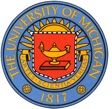On October 23, the Regents of the University of Michigan authorized the establishment of a Department of Tropical Diseases in the School of Public Health. There was a story both of sudden emergency and of provision for the future in the background of their action.
As a continental nation without colonies the United States has not in the past had much concern for those diseases which flourish near the equator, and when attention was paid to them it was usually the parasite or other disease-causing organism which the bacteriologist or parasitologist investigated, rather than the disease itself. Then suddenly came war, and American soldiers and sailors found themselves in areas where malaria, amoebic dysentery, and other tropical maladies are constantly present.
The sanitary-services of the Army and the Navy made gallant efforts to care for the men, enlisting such qualified civilian personnel as they could find and organizing an intensive training program to procure more. But it is plain that these are only temporary measures, and that in the future not only the armed services, but also civil, medical and public health authorities will have to know much more about tropical diseases and how to guard against them.
For one thing, large numbers of our own men have been infected, of whom many have already been invalided home, and more will come, bringing the diseases and possibly the insects that carry them. Again, air transport, already much greater in volume than ever before and due to increase when the fighting is over, has brought the jungles of Africa, the islands of the Pacific, and all the American tropics within traveling distances more conveniently measured in hours than in days. The hazard, therefore, is one that will persist and centers for the teaching and investigation of tropical diseases are both a present and a future necessity.
Fortunately Michigan, recognizing that the neglect of parasitic diseases in their relation to public health was one of the most serious shortcomings of American public health education, had from the start planned to include this subject in the program of its new School, organized two years ago, had equipped a special section of the second floor of the School's new building for studies of its kind, and had called to the Chair of Epidemiology a recognized authority, Dr. Lowell T. Coggeshall.
Dr. Coggeshall's work for the Army on the control of malaria, which took him thousands of miles by airplane to distant tropical areas, and which he is continuing under the University's contract for research on the subject, has given him an experience shared by few others. Associated with him in the new department are Drs. Richard J. Porter and Raymond L. Laird and a group of research assistants. We have high hopes that as a leader in the comparatively new field of tropical diseases Michigan's School of Public Health may be instrumental in safe-guarding the people against a decidedly menacing threat to their well being.
THE MICHIGAN ALUMNUS
November 20 1943, Page 160




